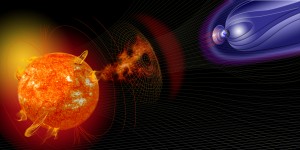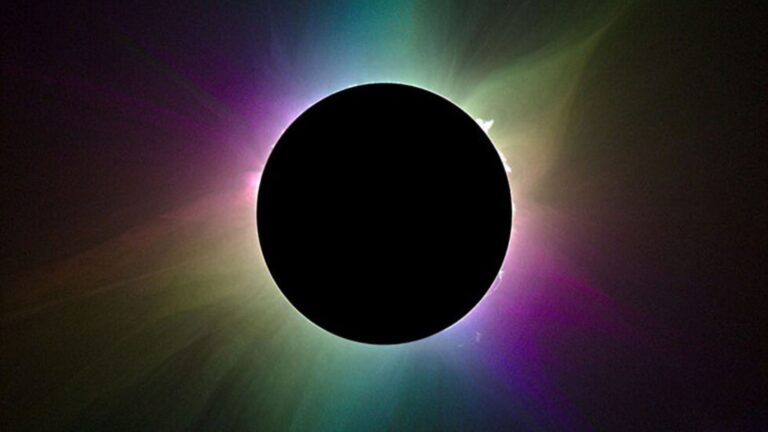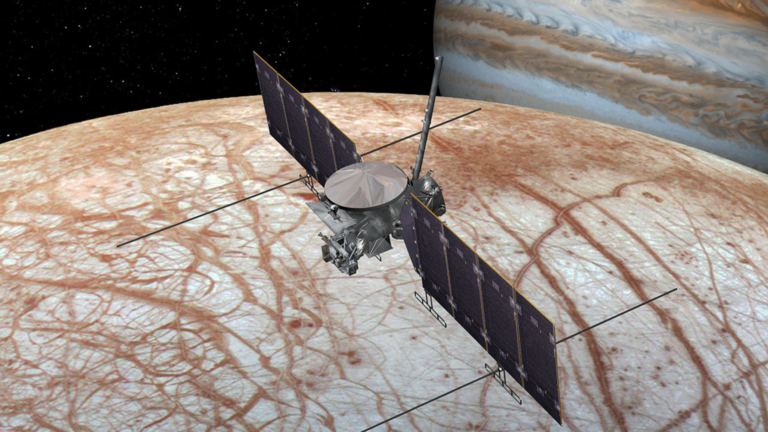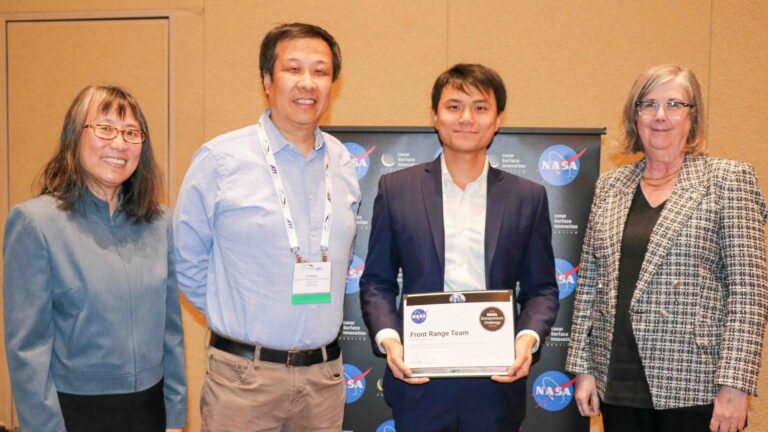
Based on years of dedication to studying the sun and its effects on space-borne and Earth-based technological systems, and under strong leadership from LASP director Dan Baker, a team of LASP scientists and engineers is being recognized for research into this ever present threat to modern society. CO-LABS announced today four winners of their 2016 Governor’s Award for High-Impact Research, with the LASP team winning in the Earth Systems and Space Sciences category.
CO-LABS is a non-profit consortium of federal research labs, research universities, businesses, and economic development organizations with a mission to support and expand the positive impacts of Colorado’s science and technology resources. Since 2009, the Governor’s Award for High-Impact Research has honored Colorado scientists and engineers from the state’s federally funded research laboratories for outstanding achievements. Each year a special committee selects projects that have had a significant global, national or state impact resulting from a scientific breakthrough, change in public policy, or development of a new technology.
Of the acknowledgement, Baker said, “I am honored on behalf of all the great people at LASP doing space research to accept this recognition from CO-LABS and Governor Hickenlooper. We appreciate the acknowledgement of the efforts we are making at the University of Colorado to address space weather issues. It is gratifying to study themes that are both fascinating from a basic scientific point of view and also highly relevant for societal needs.”
Baker and others from the LASP team will attend a ceremony and reception on October 6, 2016 at the Denver Museum of Nature & Science. Other categories recognized by the 2016 Governor’s Awards are: Foundational Science and Technology (awarded to JILA, a joint institute of CU Boulder and the National Institute of Standards and Technology), Public Health and Life Sciences, and Sustainability.
“These projects highlight the diversity and impact of the science and technology coming out of Colorado’s labs that make our state and the world a better place,” said Governor John Hickenlooper. “These awardees prove that collaboration, innovation, and incredible vision between the labs, Colorado’s research universities and private sector partners can result in remarkable achievements that make Colorado and our world smarter, safer, healthier and more sustainable.”
LASP scientists and engineers are involved in nearly a dozen NASA missions related to space weather forecasting and mitigation. Notably, Baker serves as the Solving Magnetospheric Acceleration, Reconnection, and Turbulence (SMART) Science Operations Center lead for the NASA Magnetospheric Multiscale (MMS) mission. LASP serves as the MMS Science Operations Center and hosts the science data for MMS measurements from the 100 total instruments onboard the four identical spacecraft.
Read more about each winning research project at www.CO-LABS.org.



